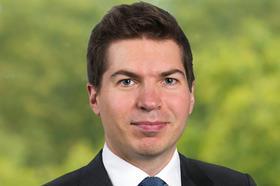On 18 April the Serious Fraud Office (SFO) published a five-year strategy setting out the organisation’s direction, values, and goals up to 2029. Read together with the wide-ranging inaugural speech by SFO director Nick Ephgrave (pictured) in February and the investigations started since he began his tenure last September, this publication provides an insight into the operational focus of the SFO under the new director and, perhaps more significantly, a recognition of the challenges it will face in achieving its objectives.

The SFO has been criticised, often unfairly, for the sclerotic pace of its investigations. However, the director has been eager to give the impression of an agency gathering momentum, with five new investigations launched in the space of six months. This five-year strategy, published still a year within the currency of the SFO’s last strategic plan, is no different.
Investigations
Two key themes from Ephgrave’s speech are revived in the strategy: intelligence gathering, in particular incentivising whistleblowers, and inter-agency cooperation.
Perhaps unsurprisingly given the director’s career as a senior police officer, the most striking theme of the strategy is intelligence gathering. The strategy states that the SFO will explore options to incentivise whistleblowers and be more open and innovative in pursuing ‘alternatives to formal prosecution where appropriate’. Whether this takes the form of increased deployment of restricted use undertakings under the Serious Organised Crime and Police Act 2005, the introduction of deferred prosecution agreements for individuals, or some other mechanism, remains to be seen. However, it is clear that the new director sees potential benefits in providing stronger incentives for direct witness testimony.
Cooperation with domestic and foreign agencies clearly remains a key priority for the SFO. In his speech, the director twice stated his intention to become ‘the collaborator’ or ‘partner of choice’ for other agencies, and that phrase also appears twice in the introduction to the strategy. Domestically, the SFO is somewhat reliant on other agencies because its officers do not have direct powers of arrest or search. It is a notable acknowledgement of the work the SFO needs to do that it does not claim to already be ‘the partner of choice’ for these agencies.
The strategy also states that the SFO needs to contribute to ‘the national intelligence picture so that the UK can better understand its security threat’. In other words, the intelligence collected by the SFO should be seen as having inherent value to the state, beyond its narrow application in the SFO bringing a criminal prosecution. If the SFO is seeking to show its value beyond the money it recoups for HM Treasury, particularly in the context of the serious security threats faced by the UK, this is a good argument to make.
Resources
The strategy raises concerns regarding recruitment and retention of staff at the SFO. This issue, although absent from the speech in February, is the one that comes first in the director’s foreword and in the accompanying video press release.
The problem of retention is plainly a serious one for the SFO – in 2022 more than 25% of its staff stated that they wanted to leave within the next 12 months, according to a civil service survey. Ephgrave’s predecessor, Lisa Osofsky, advocated for the ‘revolving door’ between the public and private sectors. Ephgrave has said that he would like lawyers to see a ‘period or spell’ at the SFO as a career-enhancing diversion from private practice, suggesting that he shares this view.
The strategy’s commitment to improving the SFO’s overall benefit package will assist with retention, but recruitment may be more of a systemic issue. The twin factors of chronic underfunding of the criminal justice system, resulting in a ‘demographic timebomb’ at the criminal defence bar, and a recruitment and retention crisis in the police mean that the SFO’s natural pool of criminal lawyers and experienced investigators is fundamentally depleted.
Future developments
The strategy foreshadows a number of potential future initiatives but gives scant detail about them. For instance, it states that the SFO will launch a pilot programme to prevent serious fraud, bribery and corruption. The US Department of Justice and the Southern District of New York have both recently announced pilot programmes whereby whistleblowers may receive non-prosecution agreements and significant financial rewards. It may be that the SFO’s pilot similarly relates to whistleblowers, and is therefore more of a pilot for detection than prevention.
Similarly, the strategy states that the SFO will work with ministers and government to advocate for new powers or changes to existing powers that would enable the SFO to ‘drive cases swiftly and efficiently’. This approach is not new – Osofsky was a vigorous advocate for the introduction of the failure to prevent fraud offence, which is now law. However, it will be interesting to see precisely what powers the director lobbies to introduce. It seems likely that the Department of Justice’s recent whistleblower pilot programmes may provide the SFO with something of a legislative wishlist.
Josef Rybacki is an associate at WilmerHale, London































No comments yet